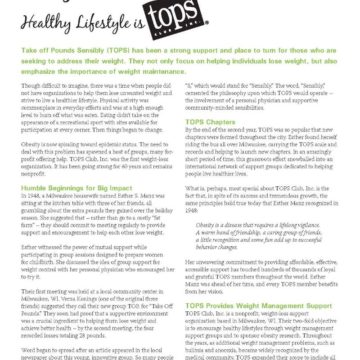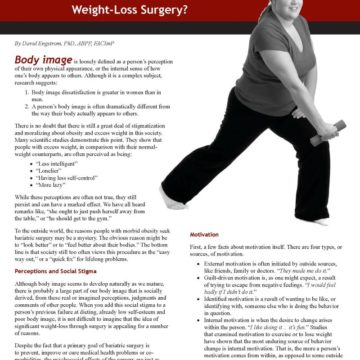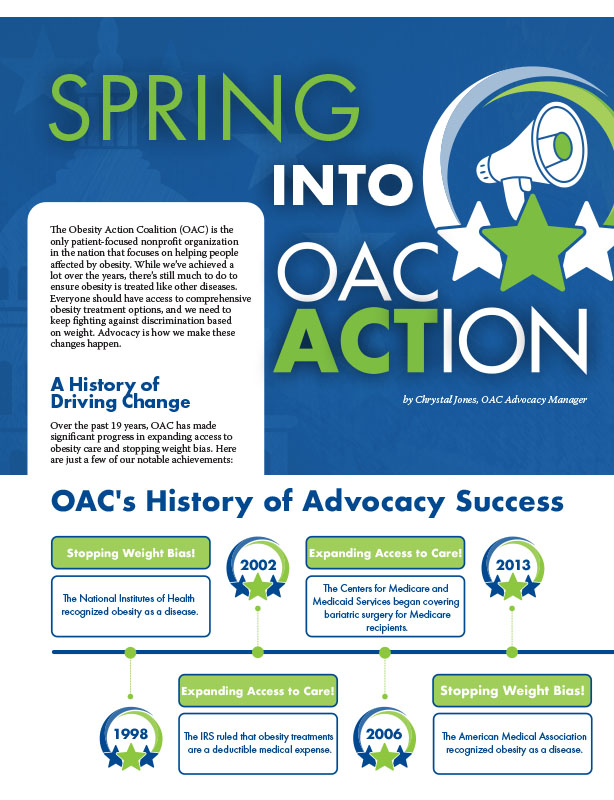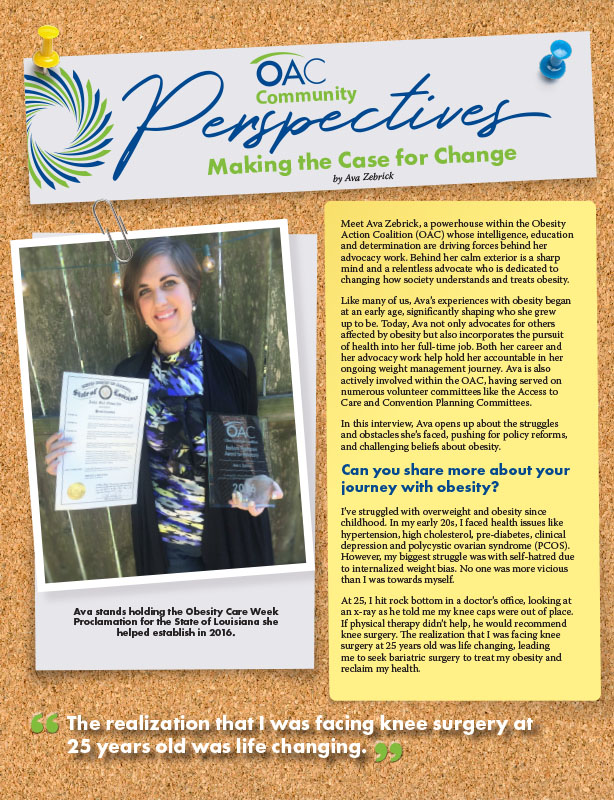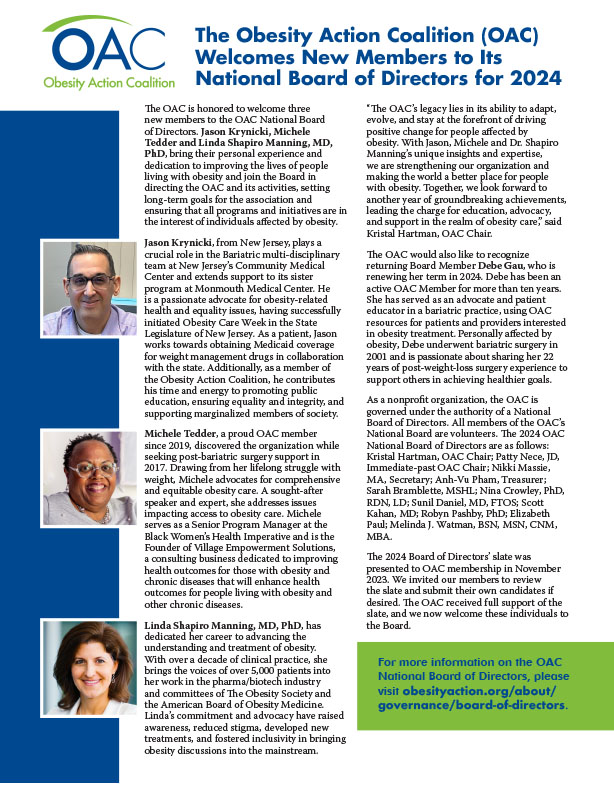Keeping Your Head in the Game: Why Support Groups are so Important

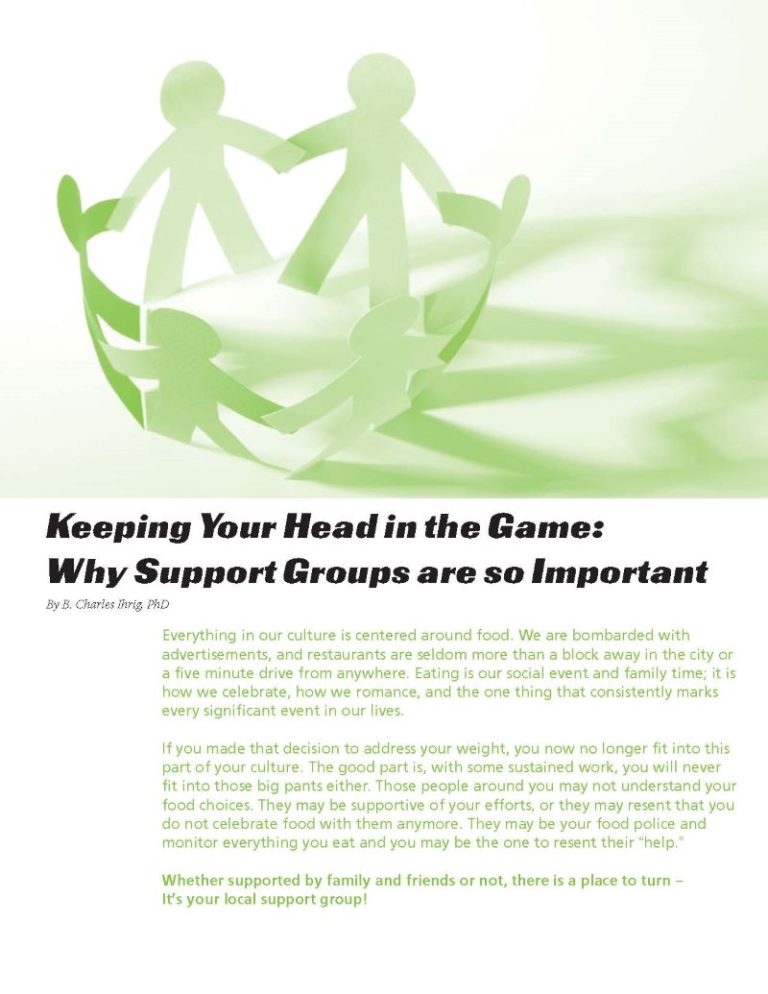
By B. Charles Ihrig, PhD
Fall 2008
Everything in our culture is centered around food. We are bombarded with advertisements, and restaurants are seldom more than a block away in the city or a five minute drive from anywhere. Eating is our social event and family time; it is how we celebrate, how we romance, and the one thing that consistently marks every significant event in our lives.
If you made that decision to address your weight, you now no longer fit into this part of your culture. The good part is, with some sustained work, you will never fit into those big pants either. Those people around you may not understand your food choices. They may be supportive of your efforts, or they may resent that you do not celebrate food with them anymore. They may be your food police and monitor everything you eat and you may be the one to resent their “help.”
Whether supported by family and friends or not, there is a place to turn – It’s your local support group!
Support Groups and Long-term Success
Weight-loss support groups are key for long-term success. Throughout years of seeing individuals succeed and struggle, one thing that most of those seem to have in common is that they are not well connected to a support group.
Simply, it is about “Keeping Your Head in the Game!” This line was a recent statement from a regular member of one of my aftercare groups as to why she continues to come, and I felt that sums up the whole point.
No matter how you chose to lose weight, whether it was through non-surgical or surgical means, significant weight-loss produces dramatic changes in your life. However, no changes were made to your brain and how you think. No matter what, changes are difficult, but are not unique. Others who have gone through this can guide you through these changes.
Support Groups and Helping Your “Addiction”
The notion has been put forth that for many individuals struggling to lose weight, food was an addiction. While everyone’s experience with obesity is a very personal one, this theme rings true for many. People feel isolated in their addiction and in their recovery. Support groups offer the companionship, accountability and healthy substitute for the prior unhealthy eating behaviors.
For people with all types of addictions, meetings have been the solution. For example, alcoholics find solace and support in Alcoholics Anonymous meetings. Those addicted to drugs gain sobriety with the help of Narcotics Anonymous. Likewise, gamblers learn to spend time at Gamblers Anonymous meetings rather than at the horse track or in a casino.
Those who have spent most of their lives in a battle against obesity are also in need of such support to conquer their addictions and change their behaviors. Support groups typically offer the same anonymity and acceptance found in 12-step experiences. Members share a similar history and unity in their weight-loss journey.
The group offers an understanding not found in our homes, family and communities. Families are also welcomed in these support groups. They see the similarities in others and feel less alone. They also get support for themselves with the changes in their home when a loved one has changed their lifestyle and chosen to treat their obesity.
Exploring Your Weight Problems
Very uniquely, I lead aftercare groups at the Centennial Center for the Treatment of Obesity in Nashville, Tenn. I am a Clinical Psychologist and the groups are geared toward a more therapeutic approach. While most support groups are organized and led by patients in their communities and neighborhoods, professionally lead groups offer the opportunity for a more guided experience. This allows for exploration of some of the thoughts and behaviors that lead to their initial weight problems.
Individuals are able to identify obstacles that may now stand in their way. Additionally, struggles during the weight-loss occur; patients share these struggles and are guided into identifying what may be behind this struggle. Stresses, depression, family problems and relationships all provide possible hurdles to the weight-loss and numbers take on new meaning, or old meanings haunt the numbers.
For instance, a patient may be stuck at 85 pounds of weight-loss and they recall the last time they were at that particular weight. They were in high school and were rejected by their high school sweetheart who had commented negatively on their weight. Meanings and motivations can be explored in such formats. Although, this should not be seen as a substitute for individual counseling, which provides an opportunity to deal with issues too personal to discuss in the group format.
Peer-led Support Groups
Peer-led support groups often reach out beyond the group itself. They serve as small communities. Peer-led support groups form walking groups or advocate for obesity-related causes in their cities and towns. Also, they share recipes and cook weight-friendly foods for each other. As a group, they go to restaurants to patron those places which accommodate appropriate food choices and servings. Mostly they share experiences, triumphs and failures.
Conclusion
Regular attendance and involvement in support groups serves as a reminder of what you are supposed to be doing. Support groups keep you honest and accountable. You are reminded of the importance of portion control and exercise. You learn tips that work for others and how to incorporate them into your life and family. Also, you learn strategies and get advice, but most of all, you will not be in it alone.
So, “Keep Your Head in the Game!” Go to your local support group, or start one in your area. Get online and join an online support group; whatever it takes, get connected to others and stay connected.
About the Author:
Charles Ihrig, PhD, is a licensed clinical psychologist and the owner and founder of Athena Consulting and Psychological Services, LLC. His company has been offering pre-surgical evaluations and follow-up psychotherapy for surgical groups in the middle Tennessee region for the last seven years.
by Chrystal Jones, OAC Advocacy Manager Spring 2024 The Obesity Action Coalition (OAC) is the only patient-focused…
Read Articleby Ava Zebrick Spring 2024 Meet Ava Zebrick, a powerhouse within the Obesity Action Coalition (OAC) whose…
Read ArticleThe OAC is honored to welcome three new members to the OAC National Board of Directors. Jason Krynicki,…
Read Article




